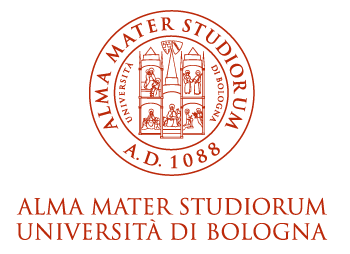Choosing the subject and the rules on preparing the dissertation for the final examination.
To graduate, you must propose a dissertation subject to a teacher within your Degree Programme, who will assess the validity of your proposal in relation to your study plan. You will have to prove to be able to develop an independent scientific work, which is meant to prepare you for future professional or academic work.
Basic editorial rules to write a dissertation in Word:
Alternatively, latex with standard options is well accepted.
The following outline should be followed:
The title page should contain the title of the thesis, your name, the academic year, your supervisor’s name and the Department designation. A template for Word has been constructed for general usage and it is available in the attachments.
An abstract typically under 200 words should summarize the core parts of the thesis. Specifically, the abstract should include the motivation for the study, statement of the research problem, the methodology used and the results and conclusions of the study.
After the abstract you should list 5 keywords describing the contents of the thesis.
The table of contents lists all the main sections in the thesis starting with the introduction. The main sections should be numbered but the references section, the acknowledgements section and the appendices section should be unnumbered. A list of figures and tables is not required.
The introduction contains a synthetic description of the thesis, reflecting the outline of the paper. The purpose and the goal of the study should be clearly stated and the motivations behind the study should be given.
Here there are no strict rules: the structure depends on the topic and on your personal preferences. Generally, a description of previous research in the area of the project should be included before introducing the specific methodology of the work. If the thesis work contains a real application or a simulation study sections on methodology and results should be divided. In case of an empirical study do not forget to describe the methods used to collect the data and how the selection of individuals and variables was conducted.
Summarize the most important results of the thesis and try to suggest future research in light of that.
Even if it is not required, it provides an opportunity to appreciate the individuals and organizations who supported you and your work. Usually it is located between the sections Discussion and References.
The reference list provides all the sources cited in the thesis, such as books, articles, techinical reports, other dissertations. In the thesis only authors and year of publication are cited. In this section you should provide: authors, year, title, name of the journal or editorial information of the book, issue and pages of the journal. There are many styles to do that. You are free to choose yours, provided that information is complete.
It might contain mathematical proofs, table or figures that are not fundamental in the main text, as well as information about the software used, computational times, description of the simulation study and the implemented code.
The Board will assess the candidate's overall performance – dissertation, curriculum, time taken to complete their studies, transfers from another University or another programme – applying specific rules for each Degree Programme.
The Board expresses its assessment with a grade out of one hundred and ten. The exam is deemed to be passed with a minimum grade of 66/110 and a maximum grade of 110/110. In the case of granting a maximum grade, the Board may also grant honours (lode) by unanimous decision.
The final assessement is composed by your Admission Grade plus some final points awarded on the basis of the thesis work. To get your Admission Grade, compute the weighted average of your marks (weights are the relative course credits), then multiply this number by 110 and divide it by 30.
The thesis will be defended publicly during a specific final examination session in front of a Committee.
The Committee will assess your performance using your curriculum as a reference. During the defence you may use slides and the Committee may ask you in-depth questions on methods, results and any developments of your work.
The criteria to assess dissertations are:
The Board will evaluate your dissertation as follows:
Further points are also added as follows:
Your Final Grade will be proclaimed after the discussion (or published on the last day of the Graduation Session on Studenti Online).
